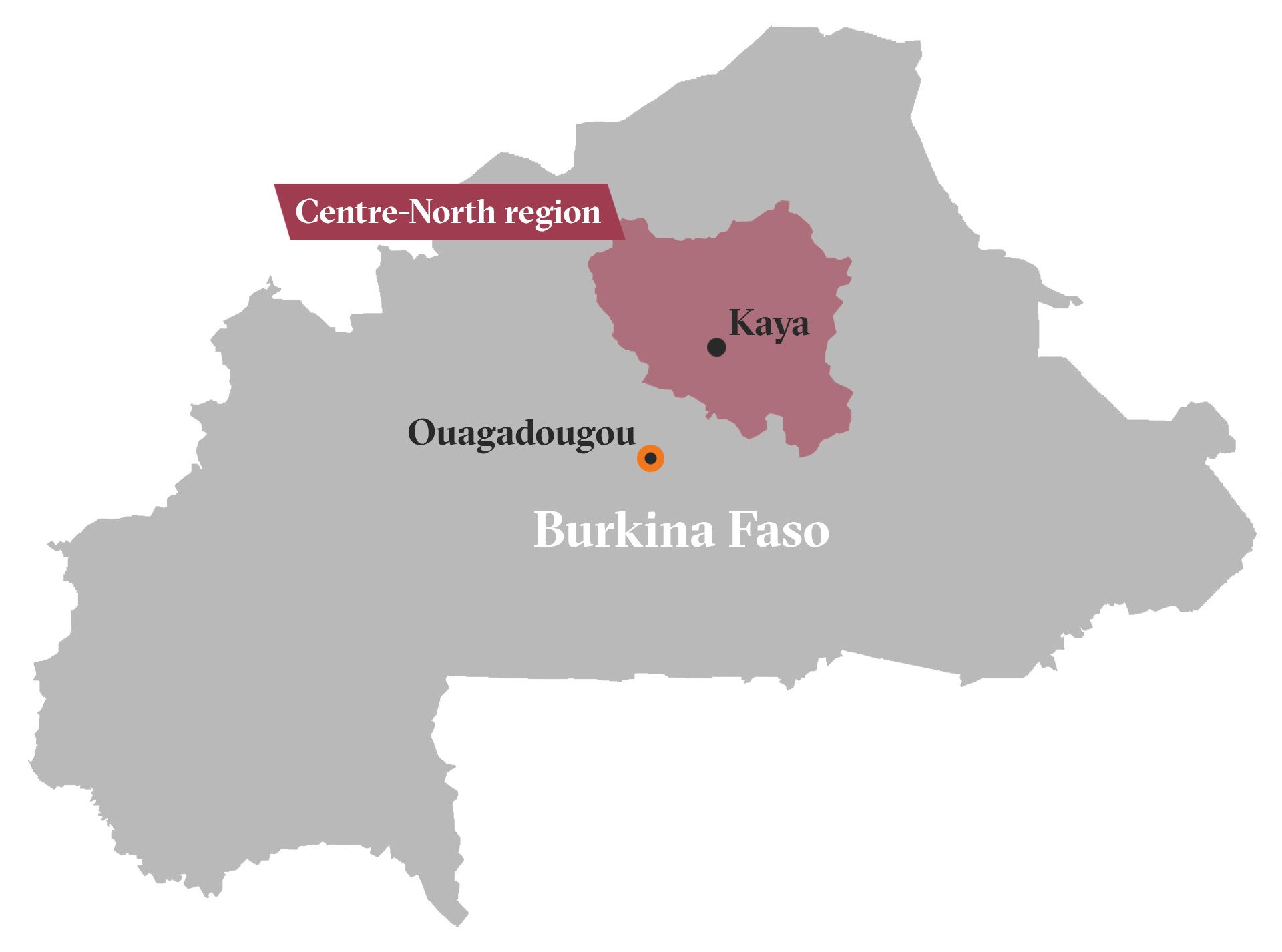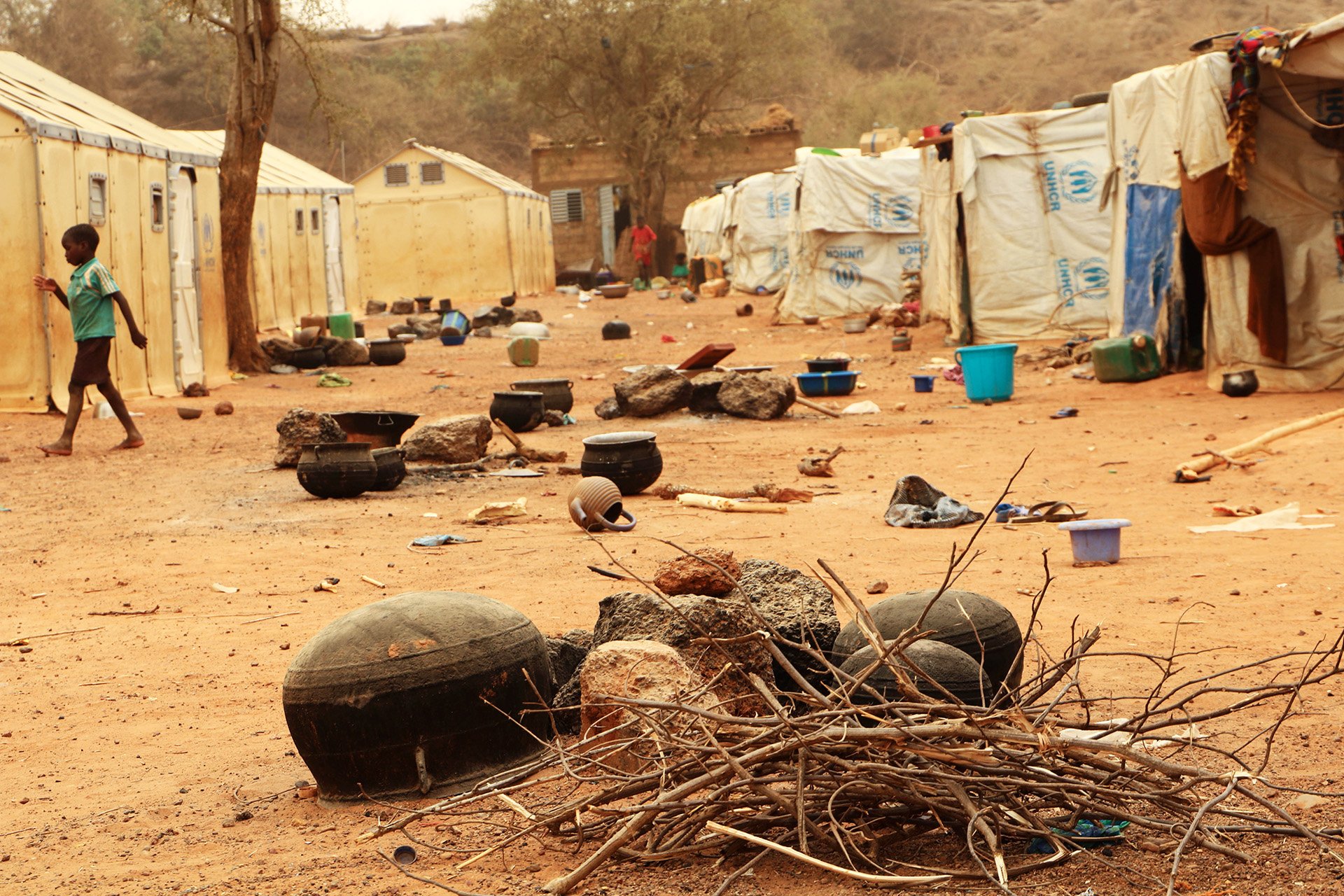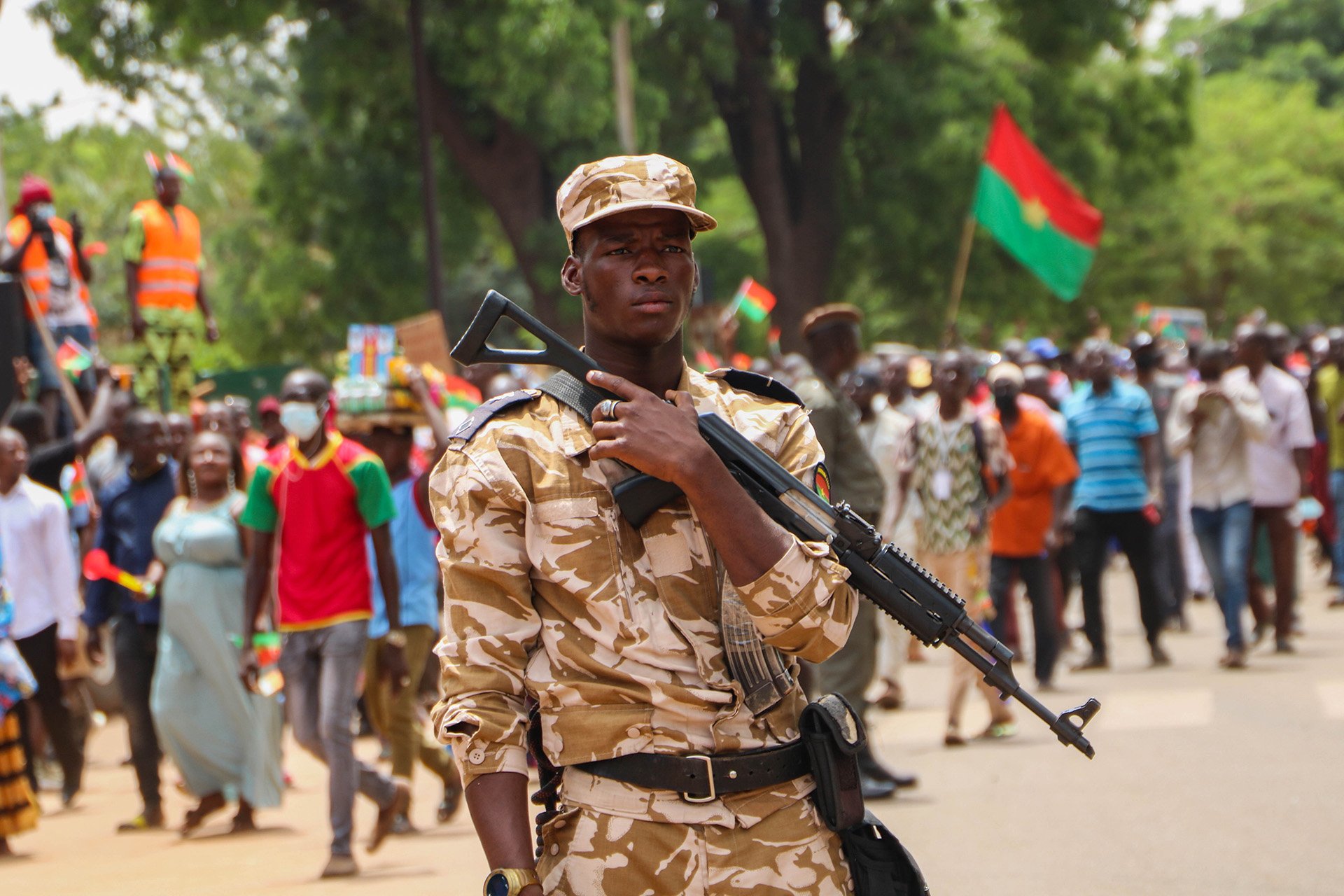The women were able to escape deadly attacks by Islamist militants that have triggered one of the world’s fastest-growing displacement crises. But their ordeal, they said, didn’t end there: In places of supposed refuge, local men demanded sex from them in exchange for humanitarian assistance.
Eight displaced women living in Burkina Faso’s northern town of Kaya told The New Humanitarian they were approached for sex by local men – some of them community leaders – who said they were registering people in need of food aid.
-
At a glance: Sexual abuse and exploitation claims in Burkina Faso
- Eight women said local men had requested sex in exchange for adding their names to government eligibility lists.
- More than a dozen other women said they had been asked for cash in exchange for having their names added to the lists.
- Aid workers and government officials said they knew of similar accounts.
- The accounts follow reports by local media and international aid groups of rape and survival sex affecting the country’s 1.3 million displaced people.
- Seven large international aid agencies and NGOs said they had received no claims involving the registration process.
- An inter-agency system to prevent and address sexual exploitation and abuse is not fully in place nearly three years after the crisis escalated and aid efforts intensified.
Most incidents took place over the past 15 months, the women said in interviews conducted in September 2020 and May 2021.
“I said yes because I was afraid [to say no] and desperate to get on the list [for food aid],” said one woman, who asked not to be named to avoid reprisals.
The woman said she had registered in 2019 with the government to receive food but didn’t receive anything. She said she then met a community leader in charge of registration and had sex with him twice between June and November 2020 because he promised to put her on a list. She never received food, she said, and she still doesn’t know if her name has been added to the lists.
The registration of displaced people in Burkina Faso is managed by the central government and local authorities, which sometimes ask community members to assist with the process. Aid groups, including the World Food Programme (WFP) – the largest supplier of food aid in the country – provide assistance to those whose names are on the lists.
The women’s accounts echo others that government officials and aid workers told The New Humanitarian they were aware of. They also follow concerns raised by local media and international aid groups over rape and so-called survival sex in displacement camps in Kaya and other parts of Burkina Faso, where more than 1.3 million people have been uprooted.
Yet aid organisations and the government – which maintains a tight grip over humanitarian operations in the country, and prevents journalists from accessing the displacement camps – have been slow to put measures in place to prevent and address sexual exploitation and abuse. Aid workers and officials said issues affecting women and girls have taken a backseat in the wider emergency response.
Most of the women who spoke to The New Humanitarian said they had refused the men’s advances but knew of other women who were propositioned in the same way, suggesting the abuse is widespread.
Another 16 women who spoke to The New Humanitarian said men had asked them for cash in exchange for adding their names to the registration lists. All but one said they paid, though none received aid in return.
A 42-year-old mother of seven – displaced from her village in 2019 – said she paid 90 cents to a man with a clipboard standing in what she thought was a government building in December 2020. She said she didn’t receive any food aid.
“No one has ever told us what was needed to get food,” said the woman, who asked not to be named. “If we weren’t talking to you today, we’d [be] walking from one sector to another trying to find a place to get food.”
Government and aid workers aware of the problem
An aid official working for a humanitarian organisation in Kaya – a displacement epicentre – said they were aware of 13 women who said they had been approached by men for sex in the same circumstances in February and March this year.
The aid official asked not to be named, citing security concerns, and did not confirm whether they took action. The New Humanitarian could not confirm whether the 13 incidents the official noted overlapped with the eight it unearthed.

A government official in Barsalogho – a town close to Kaya – said around 10 women in the area had visited the local administration between February and March this year to report that men had approached them for sex in exchange for food aid.
“In general, these women share this news after waiting in vain for the promised aid,” said the official, who asked not to be named, also citing security concerns. “We are so unhappy that these men spoil the name of our institution."
Hélène Marie Laurence Ilboudo Marchal, the minister of humanitarian action in Burkina Faso, told The New Humanitarian she was aware of the problem and encouraged women to come forward and report the abuse. “The law condemns these things,” she said. “All the people who have been victims of this kind of abuse can denounce [it].”
WFP and other aid agencies said they had spoken to community leaders and local authorities about the need to address sexual abuse and exploitation in recent months. None, however, said they had plans to stop working with the registration lists, which the government requires they use.
Despite setting up systems for women to report sexual abuse and exploitation, none of seven large international aid agencies and NGOs contacted by The New Humanitarian said they had received or reported any claims involving the registration process.
Metsi Makhetha, the UN’s highest ranking official in the country, told The New Humanitarian that the situation in Burkina Faso is “getting more complex” and that aid agencies “simply must and will do more” to protect women and girls from abuse.
Still, one senior aid official, whose name is being withheld as they weren’t authorised to speak to the media, said efforts to prevent sexual exploitation and abuse – as well as other protection-related issues – have “come in second place” throughout the response.
Soaring displacement and a chaotic response
Burkina Faso was until recently considered one of the most peaceful countries in West Africa. But the security situation has deteriorated over the past five years amid attacks linked to al-Qaeda and the so-called Islamic State, increasing the number of displaced people by more than 1,000 percent over the past two years.
Many of the women who spoke to The New Humanitarian said they had lost relatives and friends in attacks, which have continued to escalate despite a fragile ceasefire agreement in parts of the country between the government and some jihadist groups.
Read more → Burkina Faso’s secret peace talks and fragile jihadist ceasefire
Some of the women said they lived in poorly serviced camps, most of which the government doesn’t recognise as official displacement sites. Lacking formal status, aid groups and authorities “appear to have forgotten to put in place basic services” in the sites, including measures to better protect women from exploitation, said a humanitarian official who requested anonymity to avoid jeopardising relations with the government.
While it’s not uncommon for local authorities to manage registration lists in a humanitarian response, aid agencies said skyrocketing displacement means the process in Burkina Faso was initially chaotic, which slowed aid distribution.
In Kaya, a mid-size town in the Centre-North region – where nearly 500,000 displaced people are living and 60,000 are facing “emergency” hunger levels – government officials said their capacity to register people was overwhelmed.
The officials said poor communication and insufficient staffing initially resulted in displaced people not knowing where to register, registering but not receiving aid, or registering their names on multiple lists – some of which never made their way to aid agencies.
To improve the system, the authorities in Kaya said they enlisted in 2019 around 30 volunteers – mostly male community leaders nominated by displaced people – to register new arrivals.
Some of the eight women who spoke to The New Humanitarian said they were approached for sex by the nominated community leaders, whom they recognised.
The New Humanitarian also spoke with three local leaders involved in the registration process who said they had heard reports of women being exploited but added that such behaviour was not representative of most volunteers.
Some of the men may have pretended to be involved in the registration process and capitalised off the lack of information around how to register for assistance, government officials and community leaders said.
The eight women who spoke with The New Humanitarian said they found it difficult to verify the status of the men who approached them. The men would set up workstations under trees and in abandoned compounds, or stand with clipboards next to what appeared to be official registration points.
“We are farmers, growing crops and breeding animals,” said Rasmata Ouedraogo, a 46-year-old mother of five who fled her home after a jihadist attack in January 2020. She said she could not tell who was part of the response and who wasn’t.
Between August 2020 and March 2021, Ouedraogo said she tried several times to register with people she thought would help her get food assistance. She said she was twice solicited for sex and declined.
A widespread problem: ‘Women tell us about this openly’
The aid worker who noted the 13 cases said they had frequently encountered distraught women at food distribution sites in Kaya who had found that their names were not included on lists.
“[Women] tell us about this openly,” the official said. “You can go and ask why she’s crying, and she’ll tell you that when the names were registered, ‘he offered me this and that, and I refused, and that’s why my name is not on the list’.”
The aid worker said they believe Kaya is just the tip of the iceberg, with the same situation happening in displacement sites in other towns and regions, where the registration process is also government-managed. They did not confirm what procedures they had followed after encountering the cases, citing confidentiality. However, the agency they work for said it had received no allegations, suggesting the cases were not reported. The New Humanitarian is withholding the name of the agency to protect the privacy of the aid worker.
Some displaced people said they fear issues of sexual abuse and exploitation will be further ignored and marginalised since the central government has banned journalists from visiting and reporting in displacement camps.

Several aid workers said the ban – effective from around last October – was connected to reports in local media and by aid groups about rape and survival sex in the camps, which officials believed reflected poorly on the country.
Marchal, the government minister, defended the decision, claiming it was done to protect the dignity of displaced people. “We don't need the media to come and film all of this, as if it were a zoo,” she said.
The New Humanitarian was able to speak to women outside of the camps, in Kaya town.
Several local officials in Kaya – none of whom were willing to be named – blamed sexual abuse and exploitation issues on the women themselves. One said women were requesting sex because their husbands had been killed in the conflict, or because they live alone in Kaya while their partners work in mining sites outside of town.
“If women are [alone] during one month or six months or one year... they will want this sexual pleasure and sometimes they are the ones that provoke,” said the official, whose comments were similar to those made by two others in the local government.
Rarely used hotlines and feedback boxes
Asked about its responsibility to respond to the abuse claims or to try to prevent similar situations, Antoine Renard, WFP’s country director in Burkina Faso, said the organisation wasn’t responsible for the registration process and was “not a protection agency” – one that deals with rights-related issues.
But Nidhi Kapur, an independent gender specialist who works on preventing sexual exploitation and abuse in emergency contexts, said the UN should be responsible for the “full value chain” of food distributions, regardless of whether it is directly involved in each stage.
“They have a responsibility to be aware of the environment they are going into and adequately address the potential risks and harms associated with their proposed intervention,” Kapur said. “Whenever there is a large humanitarian response and you inject huge amounts of resources into a resource-poor environment, it is going to create conditions in which sexual exploitation and abuse are rife.”
WFP’s publicly available policy on sexual abuse and exploitation states that claims of abuse by partner organisations – which experts on the issue said should include the government managing the lists – must be reported through internal ethics and compliance systems.
The organisation also has a protection policy that describes its responsibility “to do all it can to support the protection of people in humanitarian emergencies, especially – but not only – women, children and marginalised and disenfranchised groups”.
While reports of sexual abuse by local officials and community leaders may not be the legal responsibility of a foreign aid agency, new guidelines from USAID – the largest donor to WFP – insist that it be informed of any suspected cases of sexual exploitation and abuse involving its resources. WFP didn’t respond when asked if it had informed its donors. USAID didn’t confirm if it had been made aware of the specific allegations.
Renard said WFP has repeatedly conveyed messages to its various partners – including the government – that it has a zero-tolerance policy for sexual abuse and exploitation.
The agency and several other aid groups said they had also increased measures to counter sexual abuse and exploitation in recent months – from arranging training sessions for aid workers on what constitutes sexual misconduct, to installing feedback boxes in displacement camps in Kaya and beyond.
But agencies have been slow to set up other systems. While large humanitarian missions often have inter-agency networks aimed at preventing sexual abuse and exploitation, such a system is not fully operational in Burkina Faso, said Makhetha, the top UN official. She said a network would be implemented by September – five years after the crisis began, and three years after it started escalating rapidly.

Asmita Naik, an international human rights consultant and co-author of a 2002 landmark report on sexual exploitation by aid workers in West Africa, described the time taken to set up the network as “incredibly slow”.
“The UN has been writing about the value of inter-agency complaints mechanisms and networks for over a decade,” she said. “The only way we’ll see progress is if donors make cooperation with joint mechanisms a condition of funding.”
Marchal said the government, meanwhile, has set up a national hotline – with support from UN agencies – that enables women to report different types of sexual and gender-based violence, not necessarily related to the distribution of aid.
Some of the women who spoke to The New Humanitarian were aware of the hotline number and said individuals – whose identity they were unsure of – had approached them in camps with information on how to use it. Others did not know the number.
Experts on addressing sexual exploitation in humanitarian operations say aid groups need to rethink their approach to reporting mechanisms, which are rarely used by complainants.
“Humanitarian groups should work with local communities to create awareness about sexual exploitation and abuse, [and] work with them to create complaint mechanisms that fit their local contexts,” said Agnes Odhiambo, a women’s rights researcher at Human Rights Watch.
Even with better systems in place, Burkinabé women said they fear abuse and exploitation will continue so long as the wider conflict does.
“We hope this crisis will end so that we can return to our homes,” said a woman in Kaya who gave only her first name, Maiga. “We think people are taking advantage of us because of our situation.”
sm/pk/js/ag






